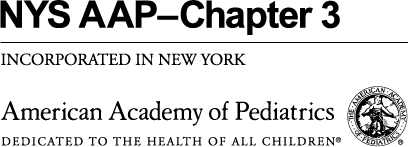Compiled by: AAP NY Chapter 3 School Health Committee
Updated 11/19/19
Have you seen a child in your office who reported being bullied? Have parents asked you how to address bullying with their school? How do you usually respond to concerns about bullying in your practice? Awareness of bullying is on the rise, and pediatricians can help prevent and address it.
Bullying has been defined as unwanted, aggressive behavior among school-aged children that involves a real or perceived power imbalance (see www.stopbullying.gov). This aggressive behavior is or can be repeated over time. Bullying behaviors can be verbal, social, or physical. Most bullying happens in the school building, either during or after school. Sometimes bullying can occur while traveling to or from school, in the neighborhood, or on the Internet.
Bullying has a number of physical, behavioral, and academic consequences. Medical concerns include health complaints such as headaches or stomachaches. Behavioral health effects of bullying include anxiety and depression. Academic consequences include decreased grades and missing school.
The role of the Pediatrician includes:
- Advocacy for prevention programs in schools
- Screening and identification
- Providing resources for the child and their family
We hope that you find the resources listed below helpful to your practice:
Parent/Family Resources
- Bullying: It’s Not OK (Healthy Children/AAP)
- PACER’s National Bullying Prevention Center
Medical Provider Resources
- The Resilience Project (AAP)
- StopBullying.gov (U.S. Health and Human Services)
- CDC – Youth Violence – Preventing Bullying
- Children’s Hospital of Philadelphia – Center for Injury Prevention – Bullying in Schools
- American Psychological Association – Bullying and School Climate
New York School District Information
- Dignity for All Students Act (NYS Law)
- Respect for All (NYC Public Schools)
- Advocates For Children’s Guide to Preventing & Addressing Bullying
- Guia de AFC para Prevenir y Tratar el Bullying
- Advocates for Children (resources on charter schools and in other languages)

